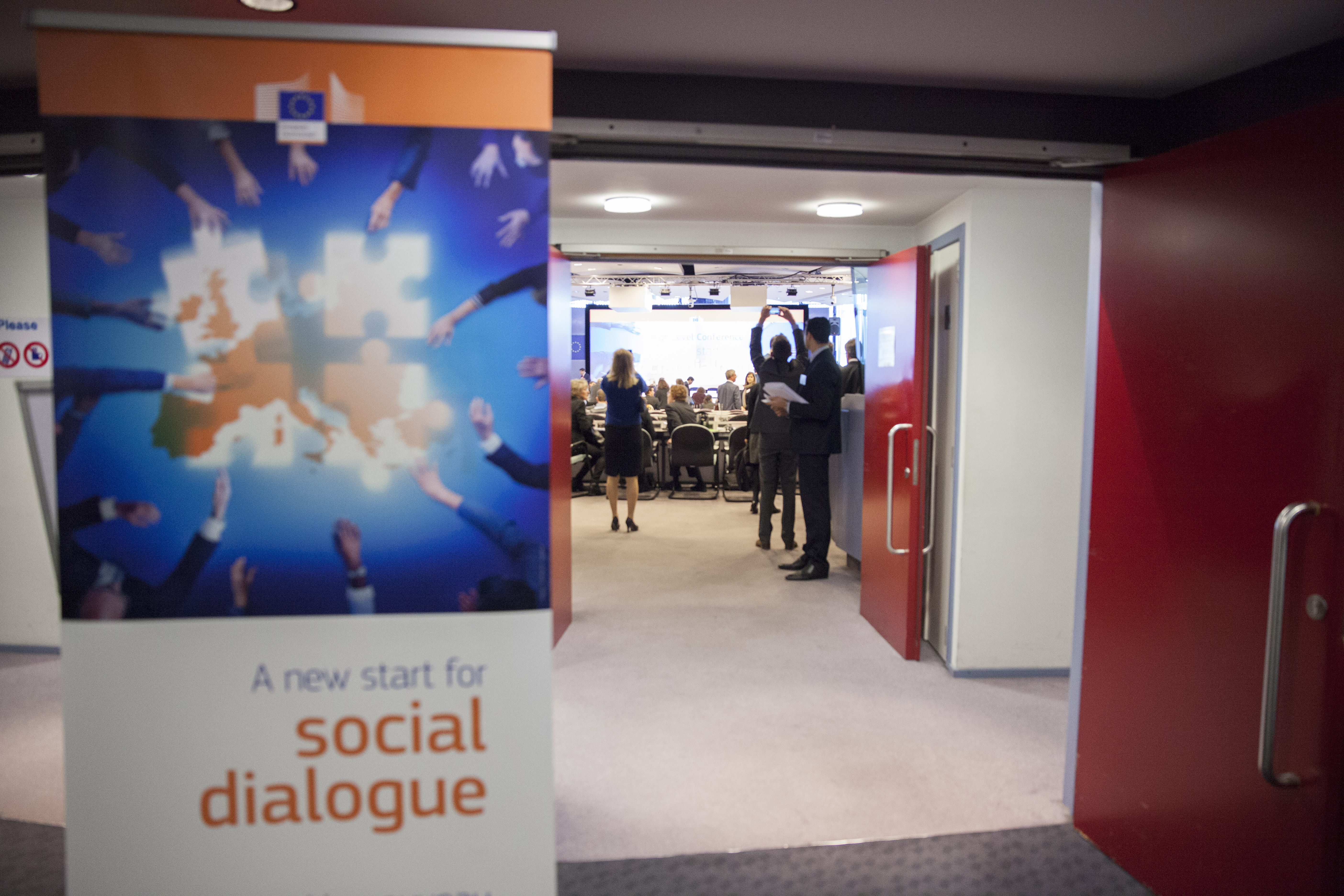
One year after European Commission President Jean-Claude Juncker relaunched European social dialogue at a high-level conference in Brussels, find out what progress has been made and how Eurofound has contributed to the work.
The European Commission under President Jean-Claude Juncker is committed to relaunching social dialogue. A first step in this direction was taken with the organisation of a high-level conference in Brussels on 5 March 2015. The aim of the conference was to discuss concrete ways to strengthen social dialogue with EU cross-industry social partners and their national affiliates. What is the situation one year later? Has Mr Juncker become the President of social dialogue?
Achievements to date
From 1985 onwards, at the initiative of the then European Communities President Jacques Delors, social dialogue took on a more autonomous and bipartite form in the preparatory phase of the Single Market. This fundamental change dates from 31 January 1985, when EU-level social partners met at the Château of Val Duchesse in Brussels.
The greatest achievement of the Val Duchesse process was the outcome of the negotiations at Maastricht, which produced the 1992 Treaty on the European Union. The Maastricht Treaty established the EU-level social partners as co-legislators, a role which was formerly reserved for Community institutions.
Today, 24 years later, a total of 23 agreements have been concluded on the basis of Article 155 of the Treaty on the Functioning of the European Union (TFEU). Some were transposed via directives (for example, on parental leave, part-time work, and fixed-term contracts) and others by so-called autonomous agreements (for example, on telework, work-related stress, harassment and violence at work, and inclusive labour markets). Despite such achievements, many academic experts and EU actors argue that social dialogue could be made more efficient, effective and meaningful.
Next steps
In order to breathe new life into EU social dialogue to deal with past and future challenges, the commitment and cooperation of all actors on the company, sectoral, national and European level would be a precondition. As a concrete outcome of the high-level conference of last year, two thematic groups were created with the participation of the social partners (at EU and national level and at cross-industry and sectoral level), the social affairs attachés from the past, present and future presidencies (Latvia, Luxembourg, Netherlands, Slovakia and Malta), the Council Secretariat, the Commission and Eurofound.
Thematic group 1 focused on social dialogue, economic governance and capacity building. It assessed the involvement and positions of the national and European social partner organisations in the European semester. Thematic Group 2 focused on social dialogue, policymaking and law-making, in particular.
Joint declaration
After six months of deliberations and discussions, the EU social partners adopted a joint declaration in Brussels on 26–27 January 2016 announcing a fresh start for a strong social dialogue at European level. To promote greater effectiveness and a better functioning social dialogue the declaration stresses the importance of:
- involving of social partners in EU policymaking;
- the functioning and effectiveness of social dialogue and the capacity-building of social partners at national level;
- involving social partners in the European economic governance and European Semester and in assessing, designing, agreeing and implementing relevant reforms and policies;
- clarifying the relation between social partners' agreements and the European Commission’s better regulation agenda.
Conclusions
Building on previous studies that were presented by Eurofound at the thematic working groups, the declaration more specifically draws the following conclusions:
- the involvement of social partners at EU level has significantly improved in recent years, but there is room for further improvement at national level;
- the involvement of national social partners in the preparation of the National Reform Programmes and in the design and implementation of relevant policy reforms could be reinforced while respecting national practices;
- annexing the views of social partners to the National Reform Programmes was considered to be a good practice;
- the concept of representativeness at both national and European levels and its implications for policymaking and law- making at EU level should be examined;
- in particular, representativeness checks need to ensure that EU social dialogue relies on recognised social partners at national level in all Member States.
The official European motto ‘United in diversity’ could be a goal for EU social dialogue to strive for the best possible outcomes for all EU citizens after the crisis: unity without uniformity and diversity without fragmentation.